Advantages of Carports
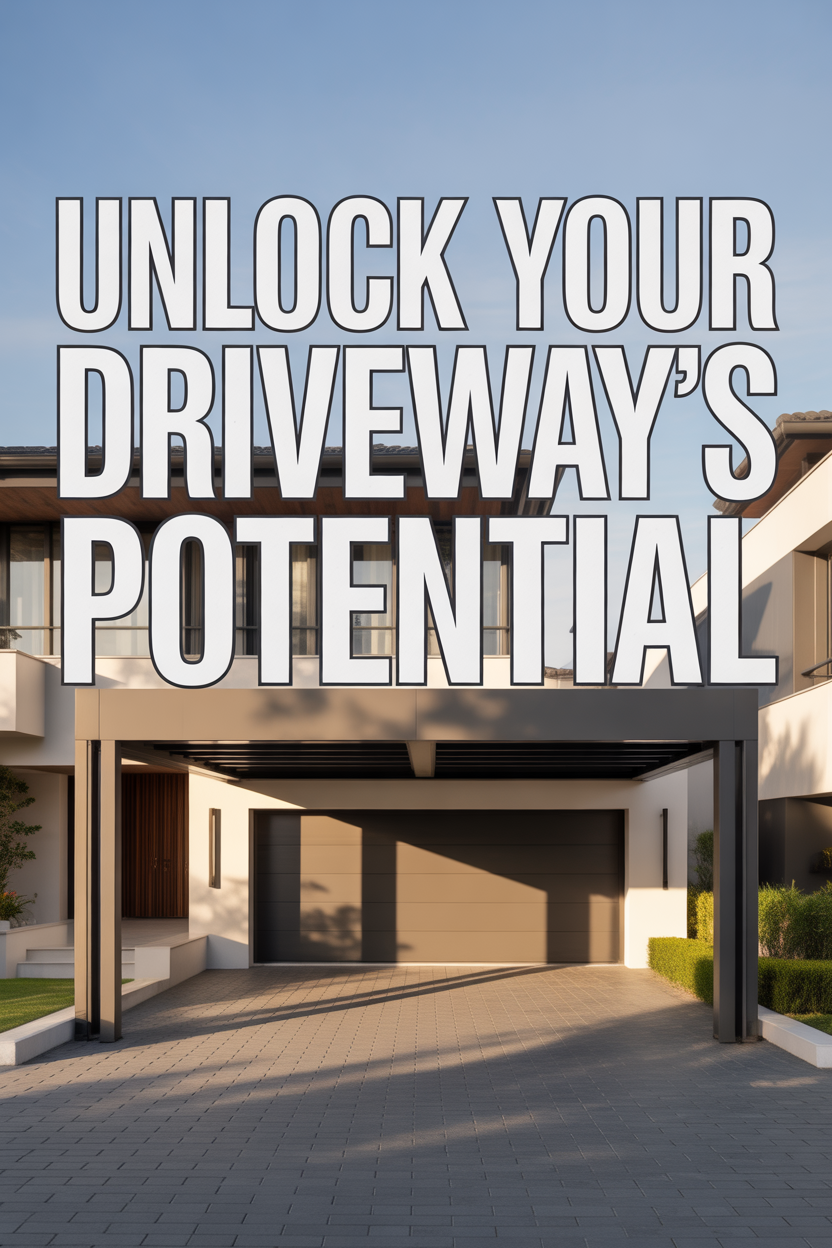
Carports offer several advantages over traditional garages, including:
- Cost: Carports are often less expensive than traditional garages, making them a more budget-friendly option for homeowners.
- Flexibility: Carports can be customized to meet your specific needs and preferences, offering flexibility in terms of size, style, and materials.
- Protection: Carports provide protection for your vehicles from the elements, including rain, snow, hail, and UV rays.
- Versatility: Carports can be used for a variety of purposes, including storage for vehicles, boats, and other items.
- Aesthetics: Carports can add aesthetic appeal to your home, enhancing its curb appeal and potentially increasing its value.
Carport Disadvantages

Here are some of the disadvantages of adding a carport to a home:
- Limited Protection: While carports offer some protection for vehicles, they do not offer the same level of protection as a fully enclosed garage. Cars, boats, and other items stored in a carport may still be exposed to the elements, including rain, snow, and hail.
- Limited Security: Carports are not as secure as garages, and may not offer adequate protection for vehicles and other items from theft or damage.
- Less Privacy: Carports may offer less privacy than garages, and can be easily viewed by neighbors or passing pedestrians.
Carport Alternatives

You might consider an awning over a carport, especially if budget is a consideration. See our article: How to Choose the Right Garage Awning (opens in a new window)
How Much Does a Carport Cost?

Factors affecting the carport cost include:
- Weather Concerns: Depending on the materials and design, carports may not be able to withstand severe weather conditions, such as high winds or heavy snow loads.
- Zoning Regulations: In some areas, there may be zoning regulations or building codes that limit the size and placement of carports. It is important to check local regulations before building a carport.
- Maintenance: Carports require regular maintenance to keep them in good condition, including cleaning and painting or staining.
Aesthetics: The design of the carport may not complement the architectural style of your home, and may detract from its overall appearance.
The cost of a carport can vary greatly depending on several factors, including the size, materials, design, and location of the carport. On average, a basic carport can cost anywhere from $1,000 to $5,000, while a more complex design or larger carport can cost upwards of $20,000 or more.
The size of the carport is a major factor in determining its cost. A smaller carport with a simple design will cost less than a larger carport with a more complex design. The materials used to build the carport also play a role in its cost. Steel and aluminum are typically the most affordable materials, while wood and other materials can be more expensive.
The design of the carport can also impact its cost. A basic carport with a flat roof and simple design will be less expensive than a carport with a peaked roof, curved roof, or intricate design. Customization options, such as the addition of skylights, windows, or doors, can also increase the cost of the carport.
The location of the carport can also impact its cost. Building a carport in a remote or difficult-to-reach location can increase the cost of construction due to transportation and material costs. It is also important to factor in any necessary permits or inspections, which can add to the cost of the carport.
Cost of Steel Carports
Steel carports are typically the most affordable option, with prices ranging from $500 to $10,000 depending on the size and features. Steel carports are also widely available, making them easy to find and purchase.
Cost of Aluminum Carports
Aluminum carports are generally more expensive than steel carports, with prices ranging from $1,000 to $15,000 depending on the size and features. Aluminum carports are also widely available, but they may be more expensive than steel carports in some areas.
Cost of Wood Carports
Wood carports are typically the most expensive option, with prices ranging from $2,000 to $20,000 depending on the size and features. Wood carports are also the most customizable option, making them a good choice for homeowners who want a unique look.
Cost of Vinyl Carports
Vinyl (plastic) carports are the least expensive option, with prices ranging from $500 to $5,000 depending on the size and features. Plastic carports are also widely available, making them easy to find and purchase.
Carport construction can also vary depending on local labor costs, permit fees, and other factors. It is best to get multiple quotes from local contractors to get a better idea of the cost of your carport project. Additionally, it is important to consider the long-term cost of maintaining and repairing your carport, as this can affect the overall cost of ownership.
Types of Carports

There are four types of carports, including the attached type my neighbors built. When choosing a carport, it is important to consider the different types available and their unique features. The most common type is freestanding, which is the easiest to install. An attached carport affects your house and is therefore the hardest to install.
- Freestanding Carport: A standalone structure that can be placed anywhere on your property, with or without a concrete foundation.
- Attached Carport: A structure that is attached to your home, typically built into a garage or connected to the house through a breezeway.
- Lean-to Carport: A single-slope roof structure attached to the side of a building.
- Flat Roof Carport: A carport with a flat roof, often built against a wall or fence.
Materials for Carports
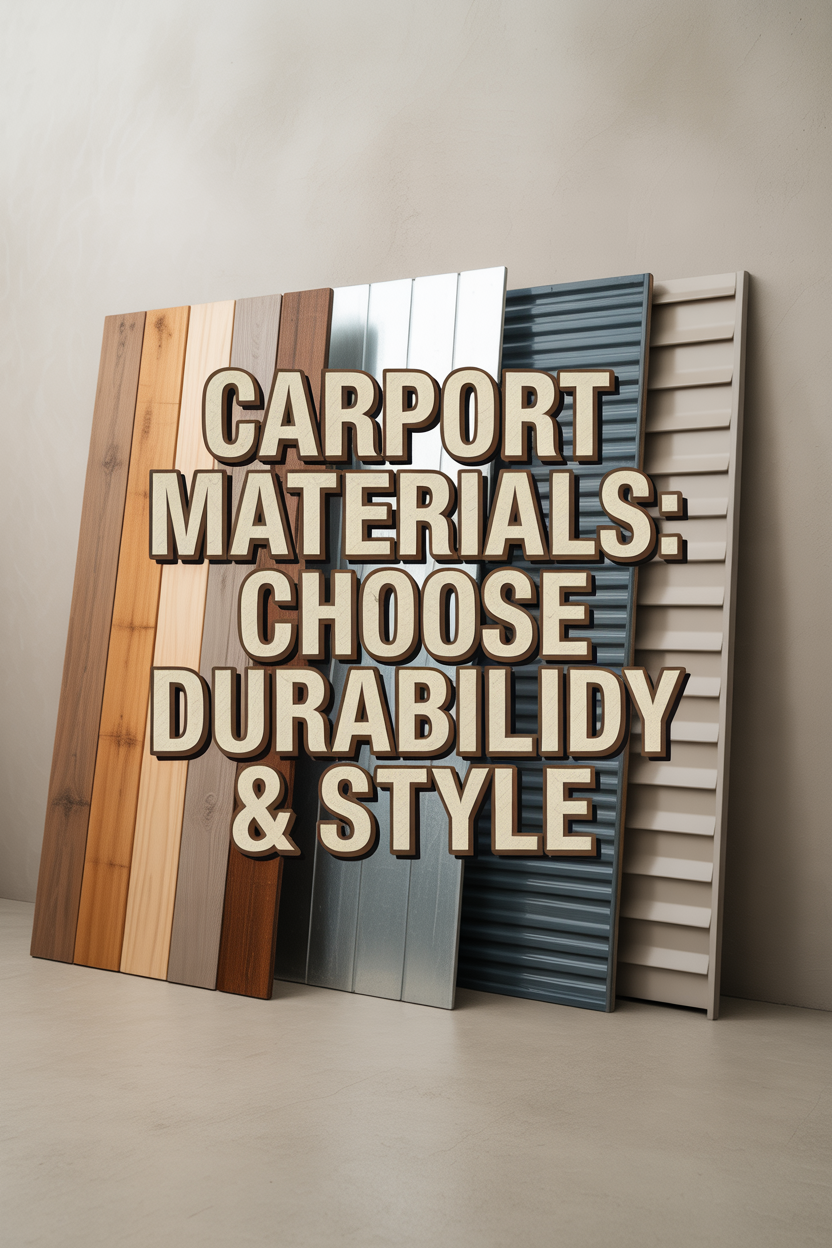
The carport material determines how long it will last and how much maintenance you need to do.
- Wood: Affordable and versatile, wood is the most popular choice for carports. It can be painted or stained to match your home, and is relatively easy to work with.
- Steel: Steel is more durable than wood, and it’s also fire-resistant. Steel carports are also more resistant to pests like termites and rodents.
- Aluminum: Lightweight and rust-resistant, aluminum is a popular choice for carports in coastal areas. It’s also easy to maintain, with a long lifespan.
- Vinyl: Maintenance-free and weather-resistant, vinyl is a great choice for carports in areas with extreme weather conditions.
Wood Carports
Wood is a traditional material for carport construction, and it can offer a warm, natural look that blends well with many homes. Wood carports are also relatively easy to customize, making them a good choice for homeowners who want a unique look. However, wood carports require regular maintenance to prevent rot, warping, and insect damage, and they are also more susceptible to fire damage compared to other materials.
Steel Carports
Steel is a widely used material for carport construction due to its strength, durability, and affordability. Steel carports are often made from galvanized steel, which helps to prevent rust and corrosion. Steel carports are also relatively easy to assemble, making them a popular choice for do-it-yourself projects. However, steel carports can be more susceptible to dents and scratches compared to other materials.
Aluminum Carports
Aluminum is another popular material for carport construction due to its lightweight, rust-resistant, and low-maintenance properties. Aluminum carports are also relatively easy to assemble, and they offer a sleek, modern look that complements many homes. However, aluminum carports can be more expensive than steel carports, and they are also more susceptible to wind damage.
Plastic (Vinyl) Carports
Plastic carports are a newer option for carport construction, and they offer a low-maintenance, lightweight, and affordable option. Plastic carports are also easy to assemble, and they are resistant to rust, rot, and insect damage. However, plastic carports are not as durable as steel or aluminum carports, and they are also more susceptible to cracking or fading in harsh weather conditions.
Benefits of Owning a Carport
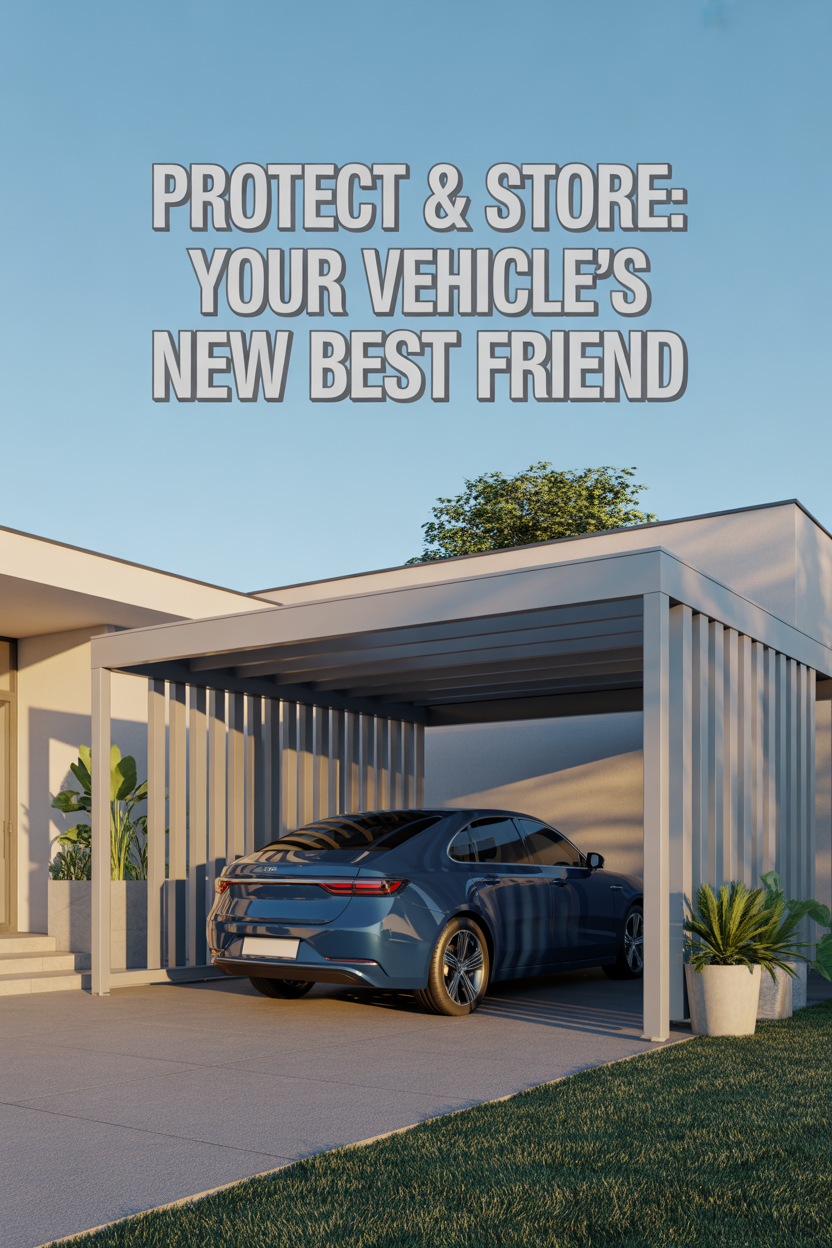
A carport protects the car from snow, rain, and ice. You can also add storage areas in the ceiling.
- Vehicle Protection: A carport provides shelter for your vehicles, protecting them from the elements and reducing the risk of damage.
- Home Value Addition: Adding a carport to your home can increase its resale value, making it a smart investment.
- Additional Storage: Carports can also be used for storage, providing extra space for lawn equipment, tools, and other items.
- Save Money: By providing shade and protection from the sun, a carport can reduce the amount of energy needed to cool your home, potentially saving you money on your energy bill.
Factors to Consider When Choosing a Carport
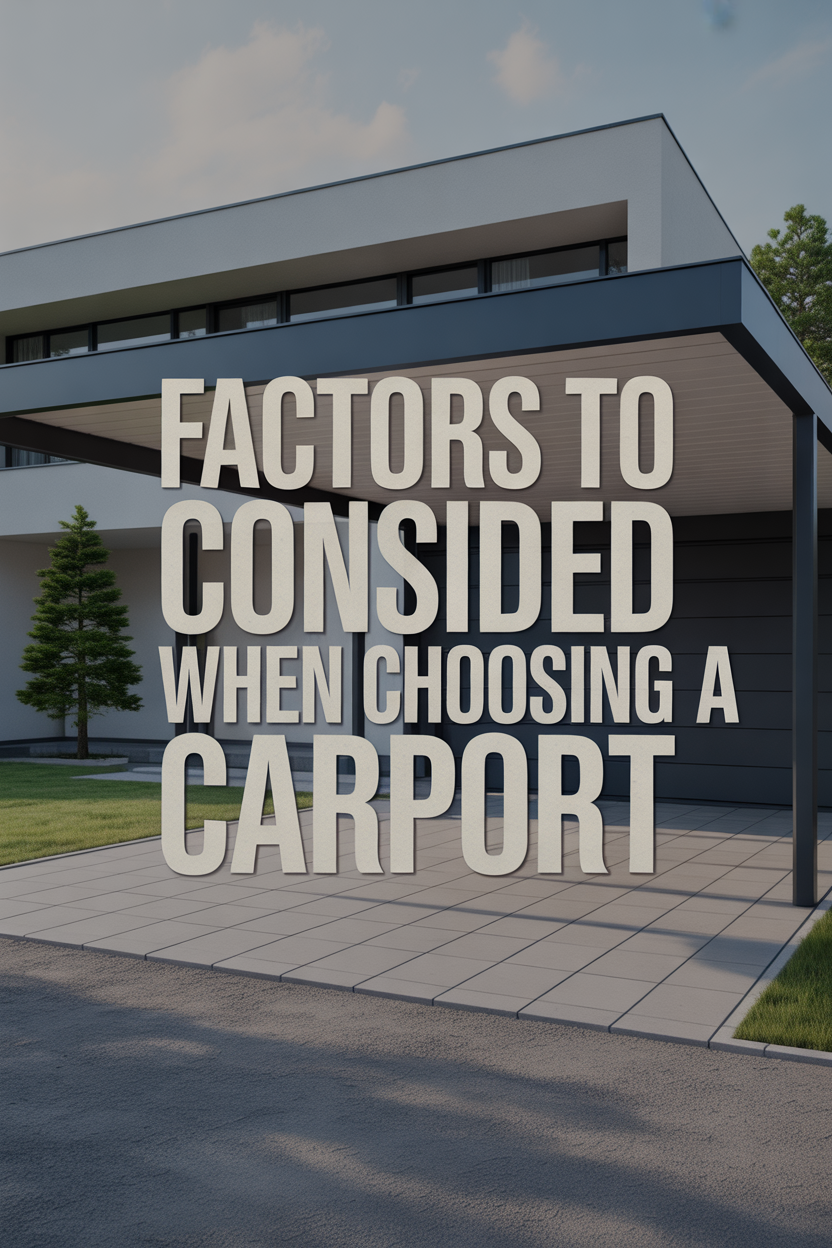
When choosing a carport, there are several factors to consider to ensure you make the right choice for your home and needs. These include:
- Size: Consider the size of your vehicles and any other items you plan to store in the carport. Make sure the carport you choose is large enough to accommodate your needs.
- Style: Choose a style that complements your home’s architecture and enhances its aesthetic appeal.
- Material: Consider the material’s durability, maintenance requirements, and resistance to weather, pests, and fire.
- Budget: Determine a budget for your carport, and choose a design and materials that fit within your budget.
- Regulations: Check local building codes and regulations to ensure your carport complies with all requirements, including permits and setbacks.
Carport Care and Maintenance
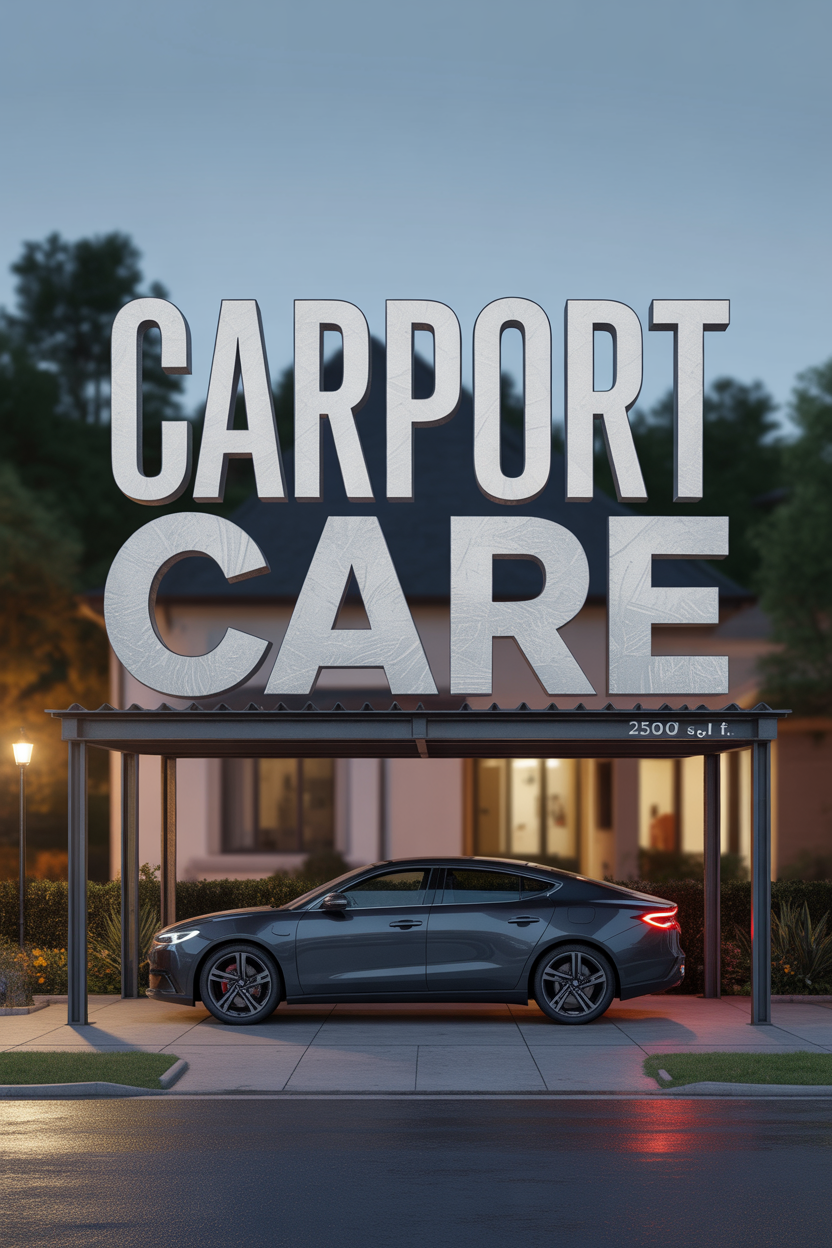
To keep your carport in good condition, it is important to perform regular maintenance and care. This includes cleaning, painting, and repairing
- Cleaning: Regularly clean the carport, including the roof and gutters, to remove debris, leaves, and other materials.
- Painting or Staining: Reapply paint or stain as needed to maintain the carport’s appearance and protect it from the elements.
- Repairing: Regularly inspect the carport for any signs of damage, and repair any issues as needed to maintain its stability and safety.
- Storing: When storing items in the carport, make sure they are securely stored to prevent damage to the carport or any accidents.
How to Build a Carport
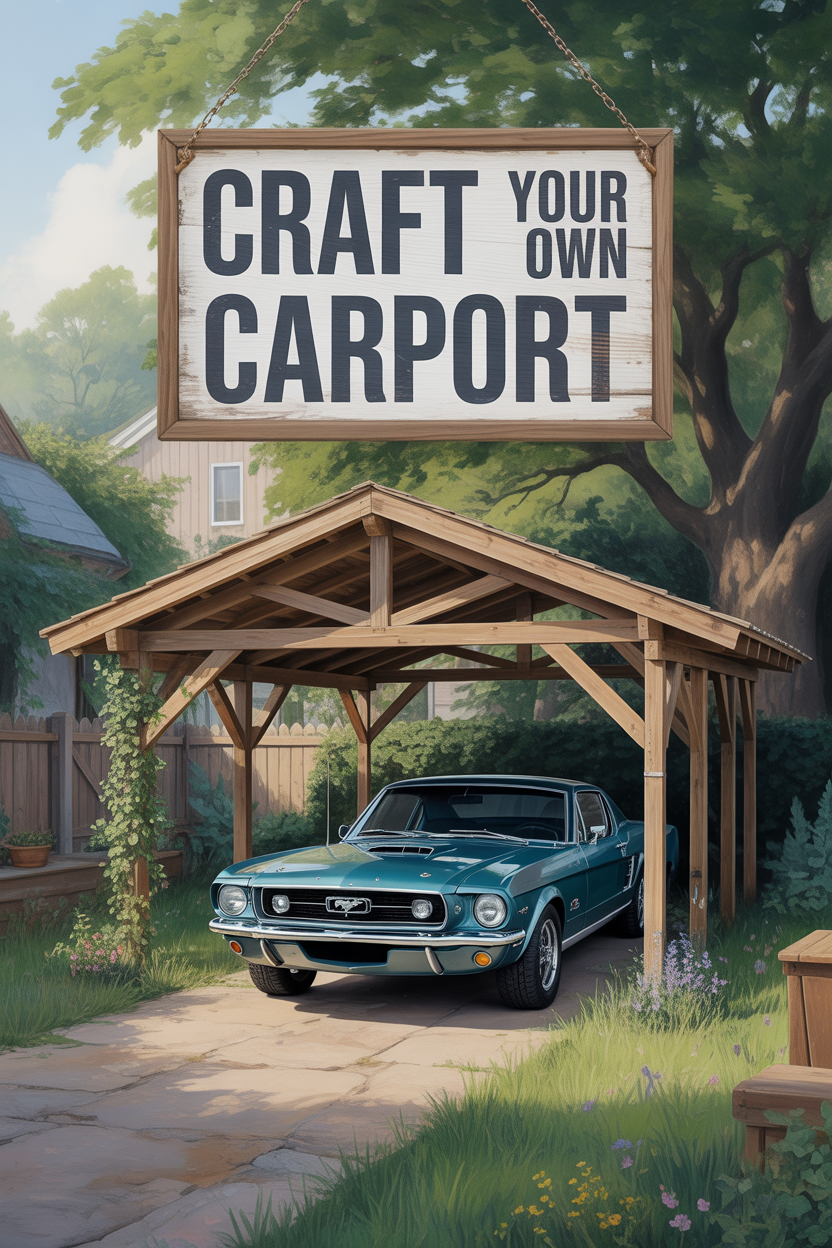
Building a carport can be a DIY project, but it is important to have a clear plan in place before beginning. Here are the steps to building a carport. You must get a building permit and submit it for inspection after construction.
- Plan: Plan your carport design and determine the size, style, and materials you will use.
- Obtain necessary permits and approvals from local authorities.
- Choose a location and design that meets your needs and complies with local regulations.
- Prepare the site by clearing any obstacles and leveling the ground.
- Install a foundation, such as concrete footings or a concrete slab, if necessary.
- Assemble: Assemble the carport structure, including the roof, sides, and supports.
- Erect the carport framework, following your design plans.
- Attach roofing material, such as metal panels or shingles.
- Install any necessary supports and bracing.
- Paint or stain the carport to match your home or your desired color.
Building a carport can be a rewarding DIY project, but if you lack the necessary skills and experience, it is recommended to hire a professional contractor.









